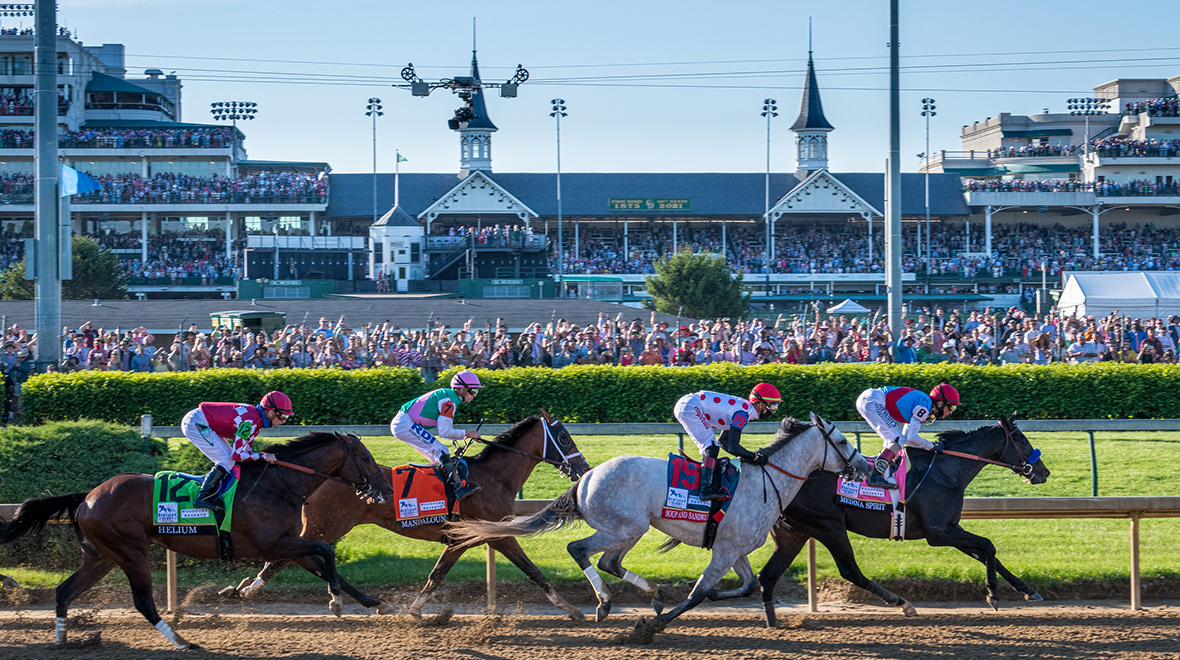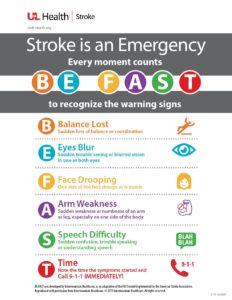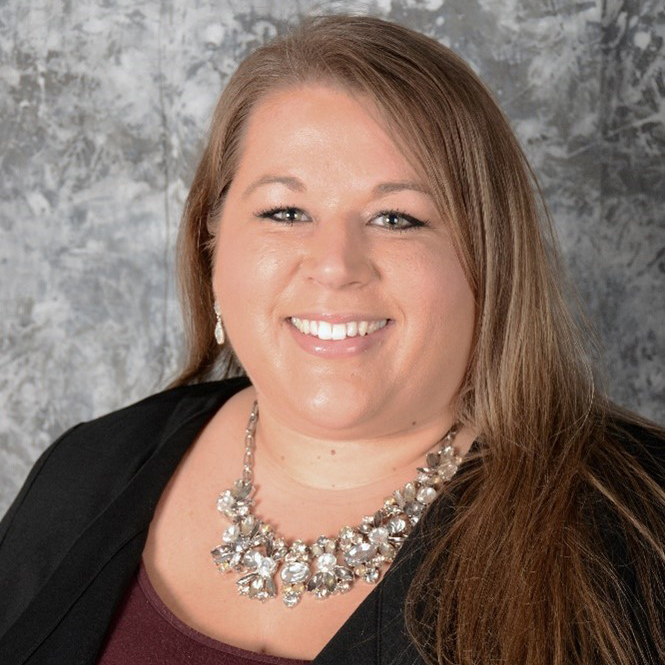
Each May in Kentucky, we spend a fair amount of time talking about horse racing and the fastest two minutes in sports. In addition to being known for fun and popular things such as bourbon and horse racing, Kentucky is also known for some less positive things.
Kentucky is in the Stroke Belt, which is an 11-state region of the U.S. where studies show the risk of stroke is 34% higher for the general population than it is in other areas of the country, and death rates are more than 10% higher than the U.S. average. If we spend more time talking about stroke and helping people recognize the signs and symptoms, they can seek medical attention for themselves or others quickly.
To begin, let’s learn about what a stroke is. A stroke occurs when the blood supply to the brain is cut off. When this happens, brain cells can die or be damaged.
There are signs when a stroke is happening, and recognizing these signs can increase your chance of recovery. Recent data from the Centers for Disease Control and Prevention (CDC) and American Heart Association indicates more than 795,000 people in the U.S. have a stroke each year.
When it comes to recognizing signs and symptoms of stroke, it is vital to BE FAST to seek help and get medical attention immediately. BE FAST also serves as a simple way to help people remember the signs and symptoms of stroke:
- Balance lost – sudden loss of balance or coordination
- Eyes blur – sudden trouble seeing or blurred vision in one or both eyes
- Face drooping – one side of the face droops or is numb
- Arm weakness – sudden weakness or numbness of an arm or leg, especially on one side of the body
- Speech difficulty – sudden confusion, trouble speaking or difficulty understanding speech
- Time – note the time the symptoms started and call 911 immediately
BE FAST was developed by Intermountain Healthcare, as an adaptation of the FAST model implemented by the American Stroke Association.
It is also important to note that a stroke can happen to anyone. More than 7.8 million people in the U.S. have had a stroke, and a stroke happens to someone every 40 seconds, according to the CDC.
Would you know if you or someone close to you was having a stroke? Would you be able to react and activate an emergency response quickly?
Recognizing and reacting quickly to stroke symptoms can save lives and save brain function. Time lost is brain lost when it comes to stroke. Studies show that up to 1.9 million brain cells die every minute during a stroke.
Just like in horse racing, every second counts, so learn how to BE FAST in recognizing a stroke.
So, you may be asking yourself, “What should I do if myself or someone around me is having a stroke?” The most important thing is to call 911 and get the person immediate medical attention for their stroke symptoms.
When you activate emergency response, please let responders know that you are concerned about stroke so that they can send the most appropriate resources. Any helpful information such as the time the symptoms started, necessary medical history such as if the person has had a stroke or transient ischemic attack in the past, or if they are on blood thinners will help the medical personnel choose the most aggressive treatment course and most appropriate transport destination.
As a stroke system of care, UofL Health – Stroke is dedicated to the aggressive treatment of stroke. At UofL Health, we have multiple levels of stroke care available around the region to offer individualized, accessible stroke care to meet each patient’s unique stroke needs.
UofL Health – UofL Hospital, the region’s first Comprehensive Stroke Center, offers the highest level of stroke treatment available. UofL Health also offers two Primary Stroke Centers at UofL Health – Jewish Hospital in downtown Louisville and UofL Health – Mary & Elizabeth Hospital in South Louisville. Additionally, we offer telemedicine services at multiple other regional hospitals in the area, such as UofL Health – Shelbyville Hospital and UofL Health – South Hospital.
Remember that fast horses are not the only thing to talk about. It’s important to BE FAST to recognize the symptoms and seek medical attention, because stroke is an emergency. To speak to someone in our stroke program, please call 502-562-8009.









